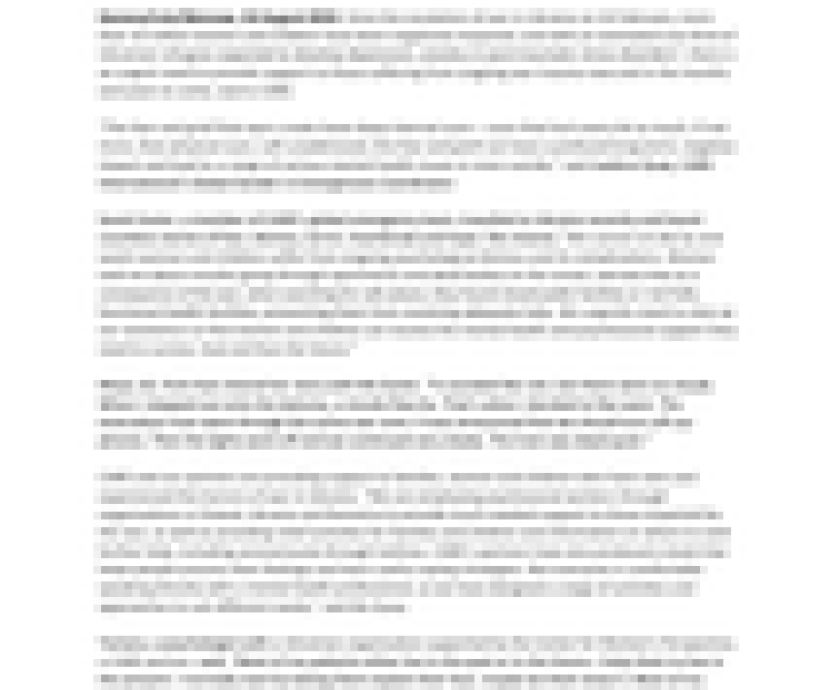Click to expand Image
Zimbabwean novelist Tsitsi Dangarembga (center) and her colleague Julie Barnes hold placards as they are arrested during an anti-corruption protest march in Harare, Zimbabwe, on July 31, 2020.
© 2020 ZINYANGE AUNTONY / AFP
(Johannesburg) – The Southern African Development Community (SADC) and the African Union should urgently and publicly speak out against the Zimbabwe government’s crackdown on peaceful anti-corruption protests on July 31, 2020.
Zimbabwe authorities have arrested at least 60 people, including the novelist Tsitsi Dangarembga and the opposition MDC Alliance spokesperson, Fadzayi Mahere, in connection with the protests. Sixteen people were injured and required medical attention. Dangarembga was released on bail the next day.
“SADC and the African Union should call out Zimbabwe’s government for its repression and rampant abuses throughout the country,” said Dewa Mavhinga, southern Africa director at Human Rights Watch. “It’s important for these regional institutions to send strong signals to the Mnangagwa administration that flagrant violations of the African Charter on Human and Peoples’ Rights and other human rights treaties are unacceptable.”
The Zimbabwe authorities have increasingly arbitrarily arrested critics of the government, Human Rights Watch said. On July 20, the police arrested and detained Hopewell Chin’ono, an awarding-winning journalist, and Jacob Ngarivhume, leader of the political group Transform Zimbabwe. Both were denied bail and remain in custody, accused of inciting public violence. Chin’ono and Ngarivhume had helped expose high-level corruption in Zimbabwe and called for nationwide anti-corruption protests on July 31.
On the eve of the anti-corruption protests on July 30, security forces raided the house of Mduduzi Mathuthu, a prominent journalist and editor of the online newspaper Zimlive, in Bulawayo. Failing to find him, they arrested his three nephews, Tawanda Muchehiwa, 22, Advent Mathuthu, 25, and Amandlenkosi Mathuthu, 19. The security agents also detained Mathuthu’s sister, Nomagugu Mathuthu, to compel him to turn himself in, but released her hours later. Advent Mathuthu was charged with incitement of public violence after allegedly being found with flyers saying “Mnangagwa & His Cabinet Must Resign,” but was freed by a court.
The Zimbabwe chapter of the Media Institute of Southern Africa (MISA-Zimbabwe) issued a statement, emailed to Human Rights Watch, that security agents “dropped off” Mathuthu’s nephew Muchehiwa at his home on August 1 at about 10 p.m. The group said that he had been tortured by alleged security agents, resulting in serious injuries. According to medical documents reviewed by Human Rights Watch, Muchehiwa was assaulted with a wooden log and sprayed with an unknown substance all over his body. He suffered extensive bruises, an acute kidney injury, and post-traumatic stress disorder.
On July 31, soldiers and the police arrested and briefly detained a lawyer, Obey Shava, and his three clients, activists Joanna Mamombe, Cecilia Chimbiri, and Netsai Marovato, as they drove to Harare Central Police Station to report in as required under their bail agreement. Police had stopped the three activists on May 13 at a checkpoint in Harare and allegedly abducted, tortured, and sexually assaulted them.
Shava, a member of the Zimbabwe Lawyers for Human Rights, told Human Rights Watch that “I complied with all the instructions they [security forces] gave, that notwithstanding, I was ordered to lie down on the ground. My client, Chimbiri, was assaulted and molested in my presence. I felt helpless.” Chimbiri said that a soldier tore off her top and brassiere and fondled her. Chimbiri was later charged with disorderly conduct in a public place, even though the security forces had assaulted her.
On August 4, President Emmerson Mnangagwa publicly denounced critics in a speech, describing them as “dark forces,” “a few rogue Zimbabweans,” and “terrorist opposition groupings.” He said: “Those who promote hate and disharmony will never win. The bad apples that have attempted to divide our people and weaken our systems shall be flushed out. Good shall triumph over evil.” He said nothing about the constitutional rights of Zimbabweans to peacefully protest or the government’s domestic and international human rights obligations.
Following the crackdown on protesters, the chairperson of the African Commission on Human and Peoples’ Rights, Solomon Dersso, said in a Twitter post on August 3, “As we follow [the] situation in Zimbabwe, critical to reiterate the African Commission on Human Rights’ view that actions of states even in fighting Covid-19 should comply with principles of legality, necessity, and proportionality, thus no basis for arbitrary deprivation of liberty or life, inhumane treatment or torture.”
The Zimbabwe crackdown on activists has inspired an online campaign, with the hashtag #ZimbabweanLivesMatter, which has resulted in more than 700,000 tweets in two days, but neither SADC nor the African Union has spoken out about the situation. South African President Cyril Ramaphosa, the current chairperson of the African Union, should press President Mnangagwa to end the wave of repression and promote respect for human rights.
“President Ramaphosa should muster support from within the African Union to hold Zimbabwe’s leadership to their human rights obligations,” Mavhinga said. “African regional actors should not remain silent in the face of escalating repression in Zimbabwe.”



